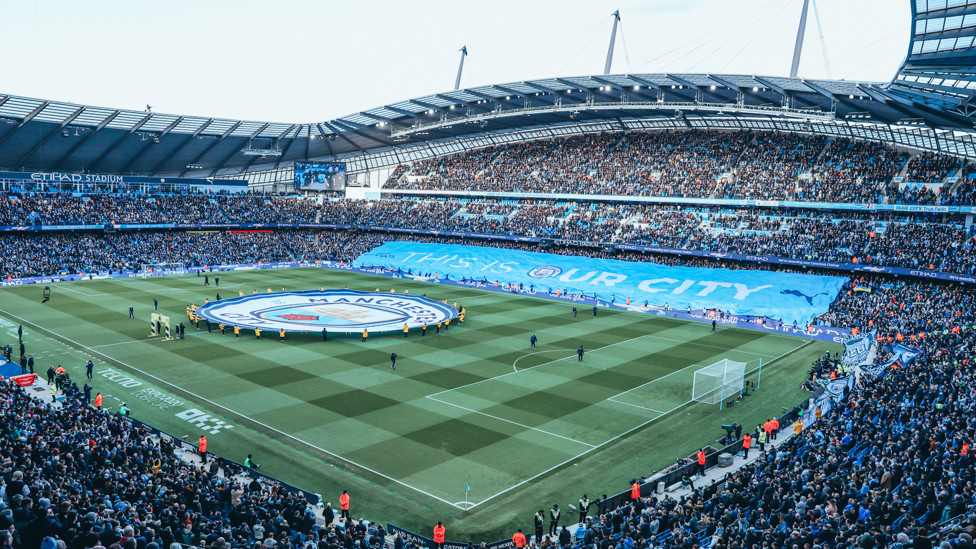A hero from Manchester City’s illustrious history has died.I had previously written about Neil’s grueling battle with cancer, and I think the overwhelming support from the City faithful he got before his tragic death at the very early age of 66 encouraged him.
Numerous thousands of football fans will remember Neil today, and he will always be a part of Manchester United’s finest team’s history and culture.
I can’t think of a better way to express my sorrow over the passing of one of Manchester and Manchester City’s finest sons than to paraphrase Gary James’ comments from his book Manchester The fine
I had previously written about Neil’s grueling battle with cancer, and I think the overwhelming support from the City faithful he got before his tragic death at the very early age of 66 encouraged him.
 Numerous thousands of football fans will remember Neil today, and he will always be a part of Manchester United’s finest team’s history and culture.
Numerous thousands of football fans will remember Neil today, and he will always be a part of Manchester United’s finest team’s history and culture.
I can’t think of a better way to express my sorrow over the passing of one of Manchester and Manchester City’s finest sons than to paraphrase Gary James’ comments from his book Manchester The finest City
Many would contend that during City’s successful Mercer-Allison era, Neil Young was the most crucial of all their forwards. During the 1965–1966 Second Division Championship season and the League Championship season the following year, he unquestionably scored the most goals. He and Colin Bell both scored more goals for the team during 1968 and 1969
He also succeeded in scoring a few significant and memorable goals during Cup competition. His iconic goal in the 1969 F.A. Cup Final returned the trophy to Manchester, and his goal in the 1970 ECWC Final gave City their first European victory. In order to assist City get to the final, he also scored twice against Schalke in the ECWC semifinal.
 Fallowfield born Young joined City as an amateur on 15th May 1959 and within two years went on to sign professional forms after proving his ability. In November 1961 he made his debut in the 2-1 defeat at Aston Villa, and remained in the side for the rest of the season. He made 45 consecutive League appearances and didn’t miss a game until December 1962. Although he missed the occasional match, he remained a City regular right up until late 1971, shortly before his departure to Preston North End.
Fallowfield born Young joined City as an amateur on 15th May 1959 and within two years went on to sign professional forms after proving his ability. In November 1961 he made his debut in the 2-1 defeat at Aston Villa, and remained in the side for the rest of the season. He made 45 consecutive League appearances and didn’t miss a game until December 1962. Although he missed the occasional match, he remained a City regular right up until late 1971, shortly before his departure to Preston North End.
One game he probably felt fortunate to miss was the infamous 2-1 defeat by Swindon on 16th January 1965 which ultimately brought the departure of manager George Poyser. The departure actually aided Young’s career as, under Mercer and Allison, he seemed to become a stronger, better attacker. He certainly benefited from the training and coaching techniques of Allison, while Mercer always felt that Young was the greatest of all his side: “He has got more talent than anybody else in the club. Six foot tall with a devastating left foot. His right foot works too! In fact he has got everything.”
Young never possessed the same level of self-assurance as other players like Summerbee and Lee, which alarmed Mercer. However, Allison’s time and effort were important in Young’s growth in that direction. However, it must be noted that Young was never the kind of player to brag about his accomplishments or his role in City’s numerous successes; instead, he let his play on the field demonstrate his talent. Sadly, Young was rarely given the recognition he deserved in the media, and by the middle of the 1980s, few people outside of Manchester were truly aware of what the player had accomplished. The focus on Bell, Lee, and Summerbee always seems to dominate videos and publications about City’s finest players, with Young’s significance being hardly discussed. This is wrong.
Young should be recognized for his numerous noteworthy accomplishments at Maine Road as well as his frequently significant objectives. With the exception of the League Cup Final, he took the field in each important game during the Mercer-Allison era. He was only benched from that game because Allison and Mercer believed his focus should be elsewhere given that he had recently become a parent.
He was sent to Preston in January 1972 after receiving a benefit match offer. When the Blues’ ongoing boardroom political disputes were resolved, the new administration rejected Young’s assertion. The incident horrified many of the former hero’s admirers, and he shunned the stadium for a considerable amount of time. Stories of Young’s treatment began to surface after the late 1980s fanzine movement took off, and in 1991, actions were made by a number of supporters organizations to demonstrate that the fans still had a strong bond with Young even though the directors did not. Many evenings had Young as the special guest.
Young returned to Maine Road when Francis Lee took over the squad in 1994 to witness a few games, and in April 1995, he joined several of his former teammates on the field to commemorate the 25th anniversary of winning the ECWC. a triumph that owes a lot to his aggressive play.
Young undoubtedly made just as much, if not more, of a contribution as the other individuals, despite perhaps not being as well-known as Summerbee, Bell, or Lee. He will always be regarded as one of the finest English-born footballers in history by City supporters.

Leave a Reply